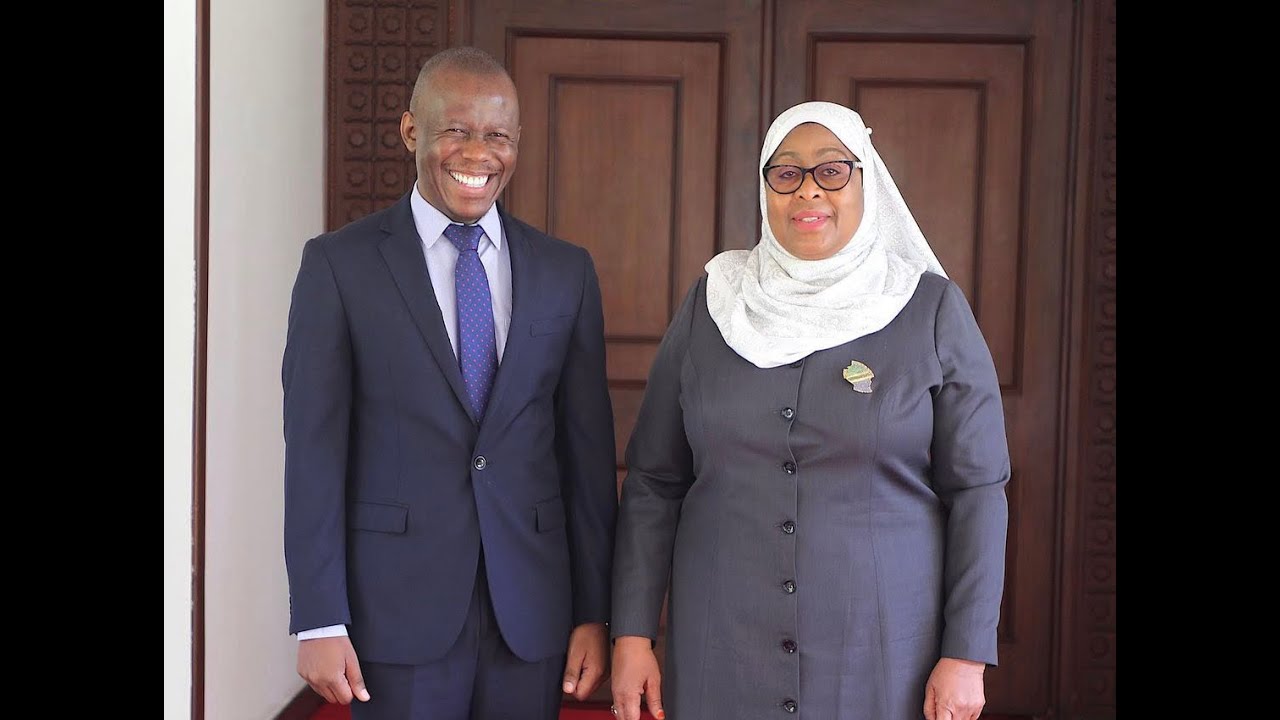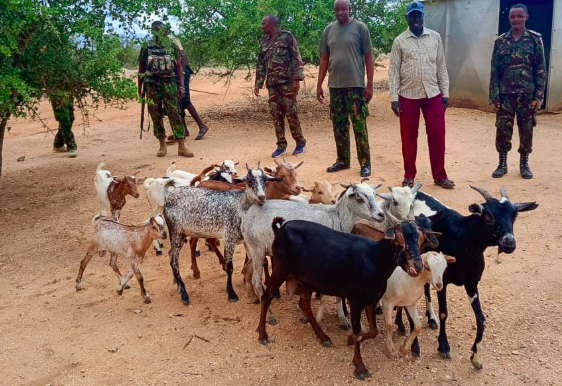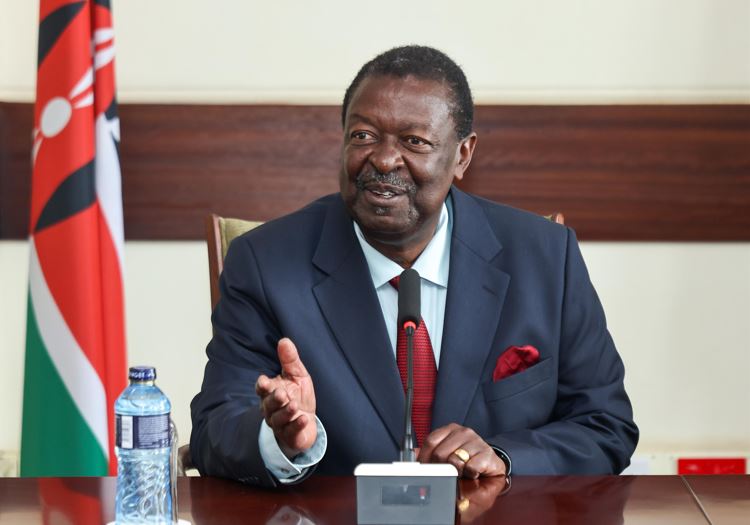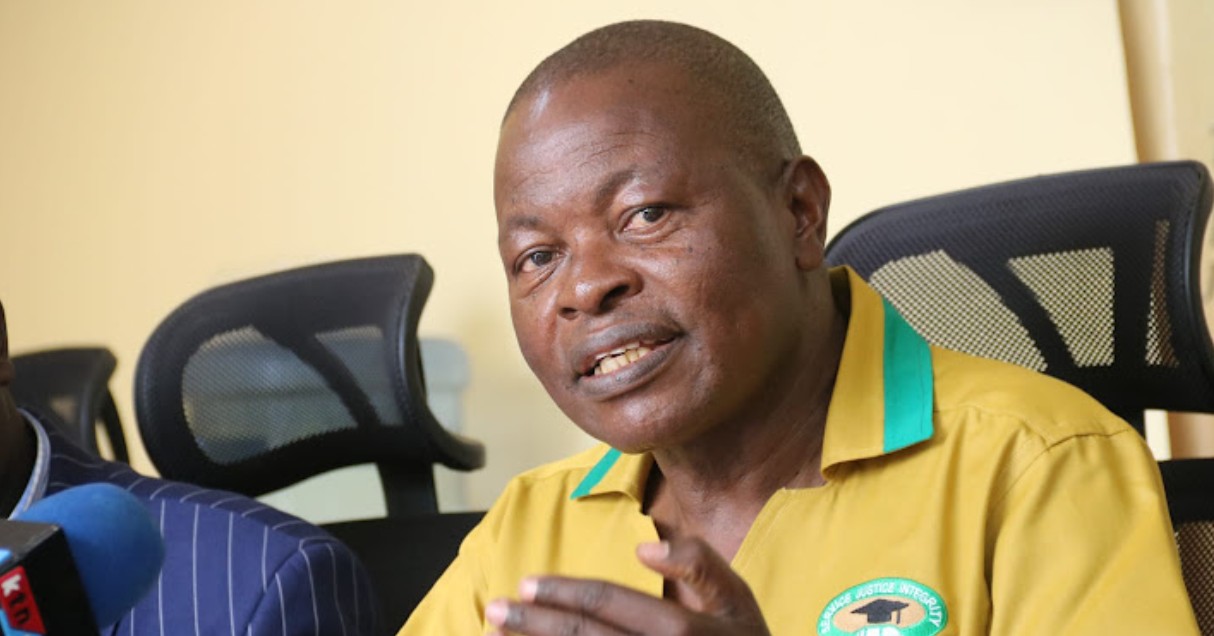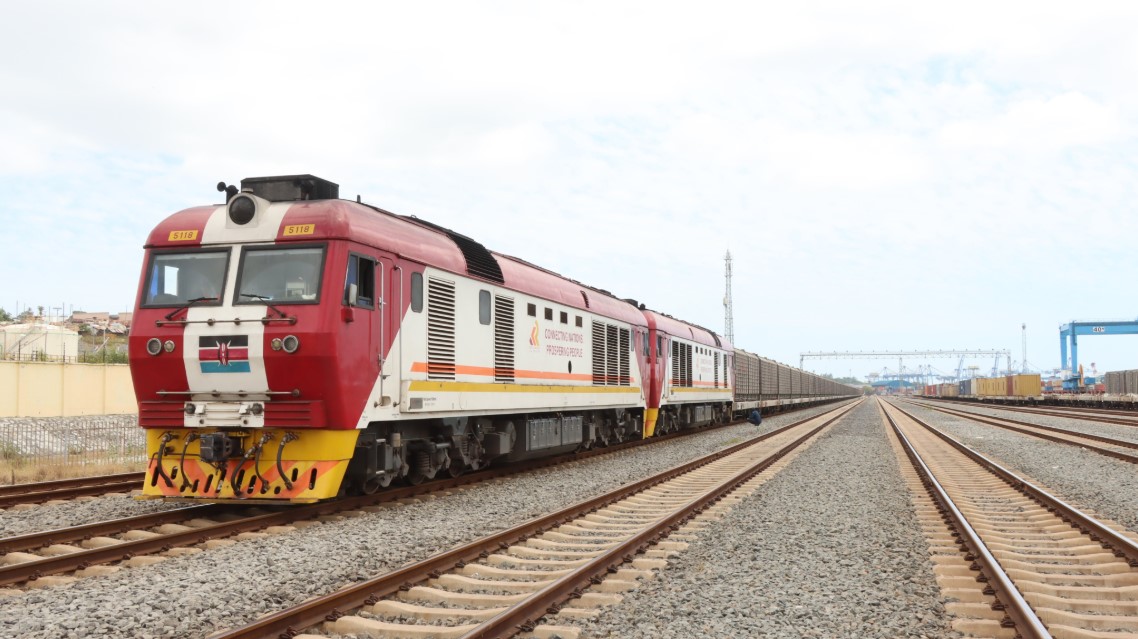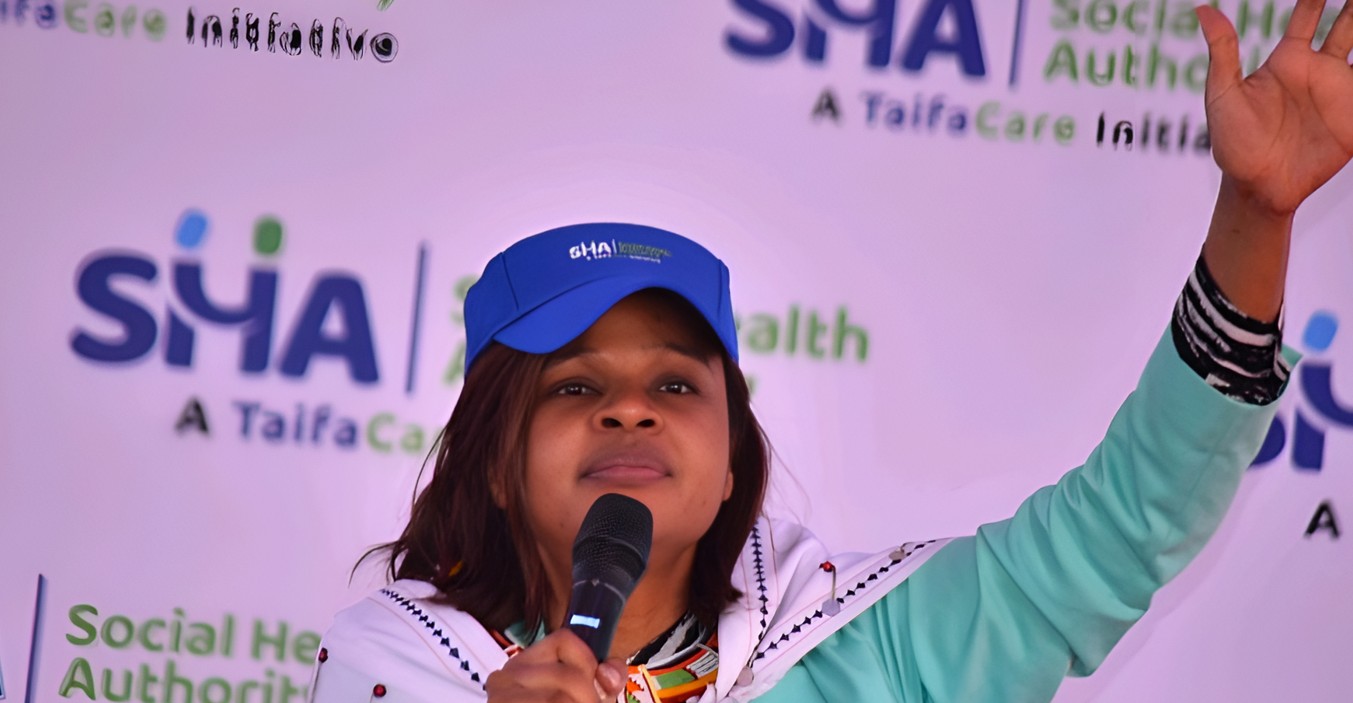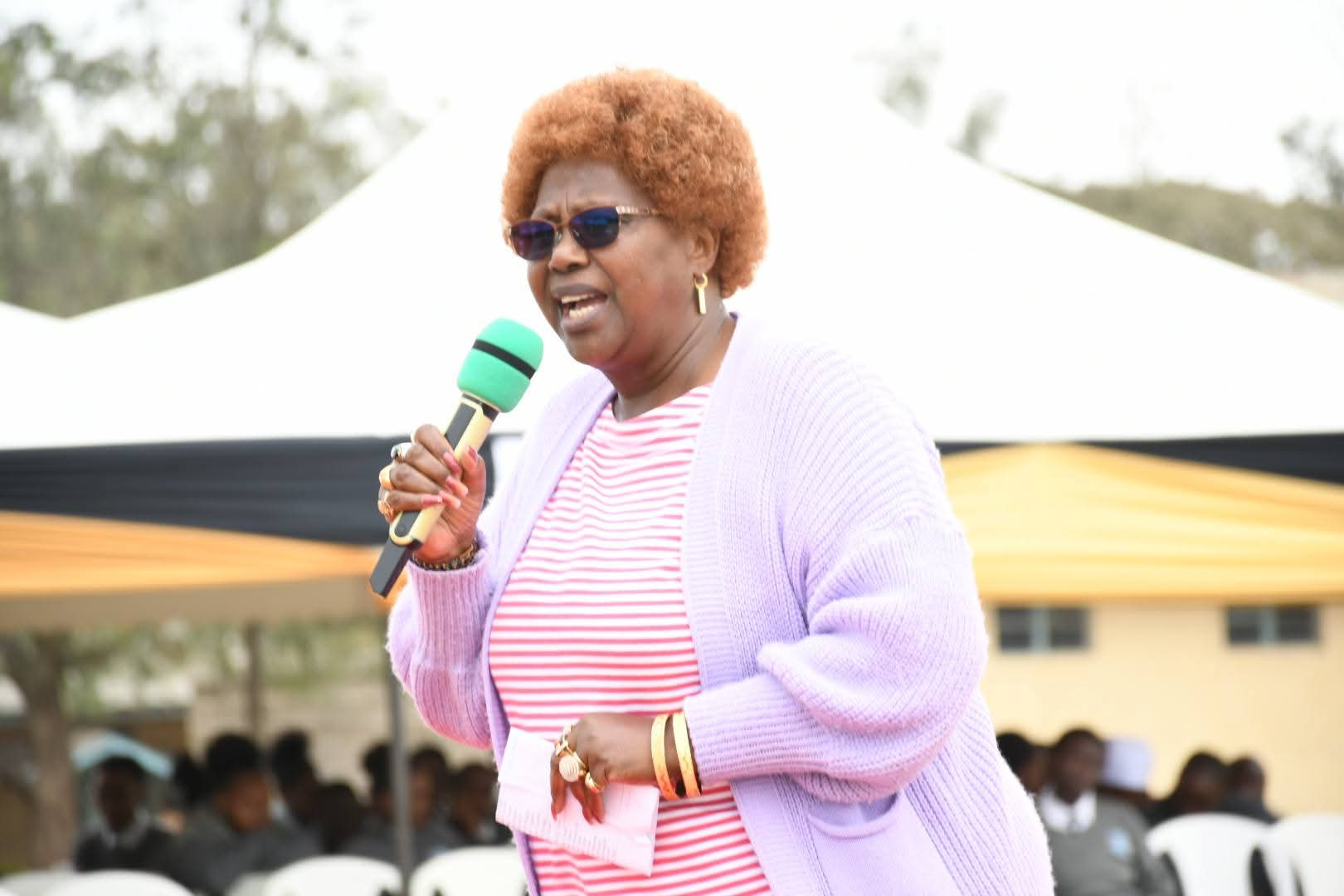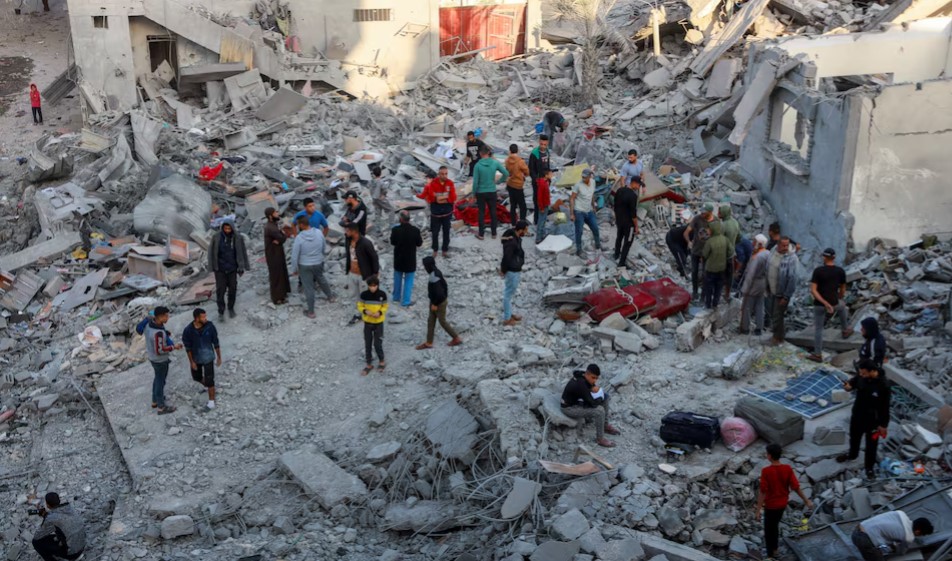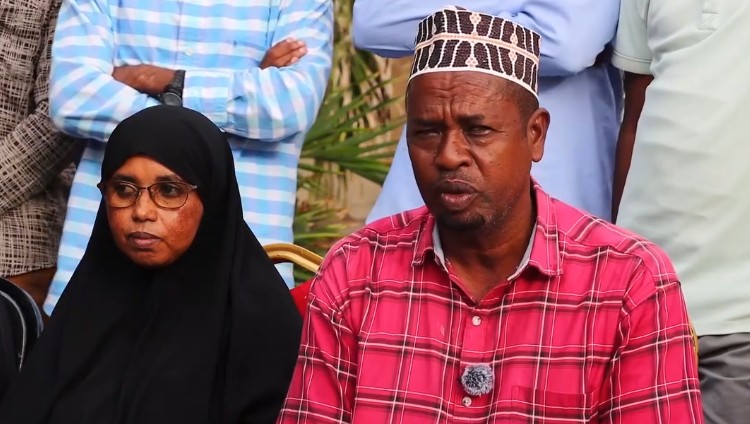Cabinet approves Sh4.2 trillion budget for 2025/26 amid fiscal adjustments
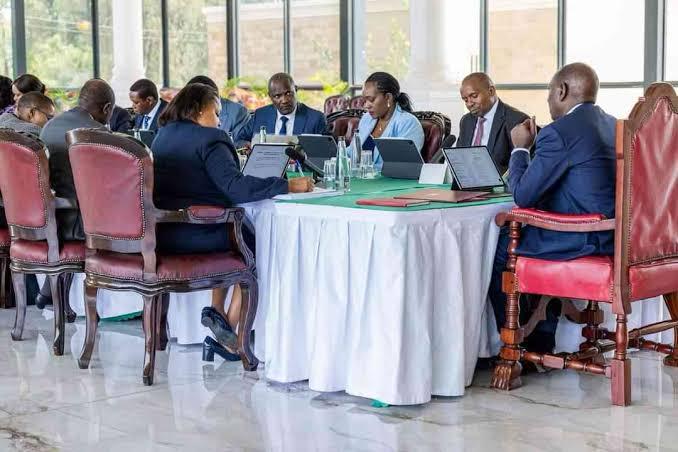
The approval comes amid economic disruptions caused by civil protests in mid-2024, which led to the withdrawal of the Finance Bill 2024. The Bill had proposed raising Sh344.3 billion in additional revenues but faced widespread public opposition.
The Cabinet has approved a Sh4.2 trillion budget for the 2025/26 financial year, marking a Sh153 billion reduction from initial projections.
The decision was reached during a special Cabinet meeting chaired by President William Ruto at State House, Nairobi, on Tuesday.
More To Read
- Chief Justice Martha Koome, CSs unveil appointees across state agencies
- President William Ruto reinstates Charles Nyachae to Kenya School of Government post
- Washington address: Ex-DP Rigathi Gachagua vows to take Ruto to ICC over killings, abductions
- Budget shortfall threatens Ruto’s Sh29.7 billion youth empowerment programme
- Governors sound alarm as pending bills balloon to Sh172 billion
- President Ruto re-gazettes IEBC Chair Ethekon, six commissioners after court cites legal breach
According to the 2025 Budget Policy Statement (BPS), the national expenditure will account for 22.1 per cent of GDP, with Sh3.09 trillion allocated to recurrent spending, Sh725.1 billion for development projects, Sh436.7 billion for county transfers, and Sh5 billion set aside for the Contingency Fund.
“The 2025 Budget Policy Statement (BPS) outlines the government’s priorities, focusing on sustaining economic growth, ensuring fiscal stability, and promoting inclusive green development,” reads the dispatch.
Under the Division of Revenue Bill 2025, county governments are set to receive Sh405.1 billion as their equitable share and Sh10.6 billion through the Equalisation Fund.
The County Allocation Revenue Bill 2025 will distribute these funds based on the Third Basis Formula, while the County Governments Additional Allocation Bill 2025 proposes an extra Sh69.8 billion—Sh12.89 billion from the National Government and Sh56.91 billion from development partners—bringing total county transfers to Sh474.87 billion.
The BPS outlines the government’s economic strategy, focusing on sustaining growth, ensuring fiscal stability, and promoting inclusive green development. Economic growth rebounded to 5.6 per cent in 2023 from 4.9 per cent in 2022, mainly due to a recovery in agriculture after two years of drought.
Growth is projected to stabilise at 5.3 per cent in 2025 and 2026, driven by increased agricultural productivity, a resilient services sector, and strategic interventions by the government.
To maintain economic momentum, the government has identified six key priorities: reducing the cost of living, eliminating hunger, creating jobs, expanding the tax base, improving foreign exchange balances, and fostering inclusive growth. These will be achieved through investments in key economic sectors, strengthening production and market access, and attracting both local and foreign investments.
The fiscal policy for 2025/26 emphasises fiscal consolidation to reduce debt vulnerability while ensuring adequate funding for essential public services.
The government plans to achieve this through expenditure rationalisation, revenue mobilisation, and enhanced tax compliance. Tax reforms under the Medium-Term Revenue Strategy will aim to expand the tax base, enhance efficiency, seal revenue loopholes, and maximise non-tax revenues from ministries, departments, and agencies.
Public finance management reforms will include the adoption of zero-based budgeting, a transition to accrual-based accounting, and the implementation of the Treasury Single Account to improve cash flow management.
The government also plans to fully operationalise IFMIS asset inventory management modules and expand public-private partnerships (PPPs) to increase private sector involvement in public service delivery.
Additionally, the Cabinet approved the 2024/25 Supplementary Estimates No. II, authorising an additional Sh344.8 billion in expenditures—Sh199 billion for recurrent spending and Sh145.8 billion for development. The funds will be used for ongoing projects, personnel emoluments, budget realignments, and revenue adjustments.
The approval comes amid economic disruptions caused by civil protests in mid-2024, which led to the withdrawal of the Finance Bill 2024. The Bill had proposed raising Sh344.3 billion in additional revenues but faced widespread public opposition.
The National Treasury had initially projected a total budget of Sh4.485 trillion for 2025/26, an increase from the Sh3 trillion allocated in the previous year. The budget will fund the three arms of government and county governments under the Medium-Term Expenditure Framework (MTEF) for 2025/26–2027/28.
According to the draft BPS, the National Government will receive Sh2.7 trillion, up from Sh2.3 trillion in 2024/25. The Executive will take the largest share at Sh2.68 trillion (59.8 per cent of the total budget), while Parliament and the Judiciary will receive Sh42.4 billion (0.9 per cent) and Sh25.6 billion (0.6 per cent) respectively.
County governments, however, will see a slight reduction in their allocation, receiving Sh405 billion, down from Sh410 billion in the previous financial year.
The government plans to implement a zero-based budgeting approach in 2025/26, ensuring that all expenditures are justified based on current needs rather than previous allocations.
Revenue projections for the year stand at Sh3.516 trillion, equivalent to 18.2 per cent of GDP, up from Sh3.06 trillion (16.9 per cent of GDP) in 2024/25. Ordinary revenue is expected to reach Sh3.018 trillion, driven by ongoing tax policy and administration reforms aimed at expanding the tax base and improving compliance.
Total expenditure is projected to rise to Sh4.329 trillion (22.5 per cent of GDP), up from Sh3.88 trillion (21.5 per cent of GDP) in the previous year. This will include Sh3.077 trillion for recurrent spending (16 per cent of GDP), Sh804.7 billion for development (4.2 per cent of GDP), Sh442.7 billion for county transfers, and Sh5 billion for the Contingency Fund.
The fiscal deficit for 2025/26 is expected to stand at Sh759.4 billion (3.9 per cent of GDP), slightly lower than the Sh768.6 billion (4.3 per cent of GDP) recorded in the previous year. The deficit will be financed through net external borrowing of Sh213.7 billion (1.1 per cent of GDP) and net domestic borrowing of Sh545.8 billion (2.8 per cent of GDP).
The Treasury reaffirmed that the 2025/26 budget will be guided by the Bottom-Up Economic Transformation Agenda (BETA), which aims to promote inclusive growth and economic turnaround.
The government will prioritise agriculture, healthcare, housing, micro, small, and medium enterprises (MSMEs), and the digital economy, while also supporting key enablers such as infrastructure, manufacturing, and social protection.
Top Stories Today
